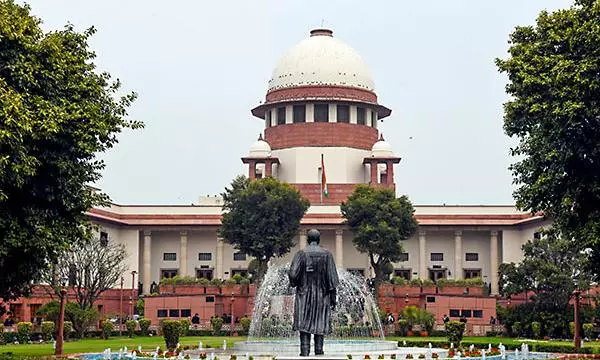
SC upholds HC order on Bhopal gas tragedy toxic waste disposal

New Delhi, Feb 27 (PTI) The Supreme Court on Thursday refused to interfere with a Madhya Pradesh High Court order on shifting of toxic waste of the 1984 Bhopal gas tragedy and disposing it in Pithampur area in the state's Dhar district.
A bench of Justices B R Gavai and Augustine George Masih disposed of a petition which challenged an order of December 3, 2024 of the high court directing the state government to take steps for removal of toxic waste material from the site of Union Carbide India Ltd (UCIL).
The bench said the high court had passed the order after considering views of an expert committee comprising directors of the National Environmental Engineering Institute (NEERI), the National Geophysical Research Institute (NGRI) and chairman of Central Pollution Control Board (CPCB).
It said both NEERI and NGRI were "institutes of repute and recognition" in their respective fields and courts had often relied on their views whenever faced with questions on environmental protection.
The bench took on record the affidavit filed by senior advocate Nachiketa Joshi, appearing for the Madhya Pradesh government, that contained minutes of a meeting held on June 19, 2023, where views of experts from NEERI, NGRI and CPCB were noted.
The state government, the court said, took the decision after the approval from the expert panel.
"The impugned high court order would reveal that it took a serious view of the lethargic manner in which the state government was dealing with the disposal of waste. It is revealed that only after the direction from the high court, the matter has moved. The high court is monitoring the matter. In that view of the matter, we do not find any reason to interfere with impugned order…," the bench said.
The top court further directed the intervenors, including civil society members, to raise their grievances before the high court, which would considered it.
Parties were further allowed to give their suggestions, if any, before the high court or the state government, which will in turn forward it to the expert committee for consideration.
Joshi said the first trial run as directed by the high court was set to be conducted on Thursday for disposal of the waste.
The bench said it had disposed of the matter for when an order was dictated in open court, it immediately came into effect.
Senior advocate Devadatt Kamat, appearing for the petitioner, said not all recommendations and safeguards suggested by the expert panel were adopted by the state government in disposal of the waste.
The bench said it couldn't sit on the opinion of experts, who had already approved the transportation and disposal of the waste.
Senior advocate Anand Grover, representing others, said civil society members, who were working in Bhopal for the past 40 years were required to be consulted before disposal of the waste.
The bench, however, did not agree with the submissions and asked the aggrieved parties to raise their arguments before the high court.
On February 25, the top court asked authorities to apprise it about the precautions taken to dispose of the waste.
Around 377 tonnes of hazardous waste from the now defunct UCIL factory was shifted to Pithampur industrial area, about 250 km away from Bhopal and 30 km from Indore, for disposal at a plant.
Highly toxic gas methyl isocyanate (MIC) leaked from the Union Carbide factory during the intervening night of December 2-3, 1984, killing 5,479 people and maiming more than five lakh. It is considered to be among the worst industrial disasters in the world.
The plea, filed through advocate Sarvam Ritam Khare, before the top court highlighted the risk to the lives and health of residents of the villages situated within a kilometer's radius from the disposal site.
The high court in a December 2024 order rebuked the authorities for not clearing the UCIL site in Bhopal despite directions from the Supreme Court and set a four-week deadline to shift the waste.
It warned the government of contempt proceedings if its directive was not followed.
On the night of January 1, the shifting of toxic waste began in 12 sealed container trucks for its disposal, an official said.
In its February 18 order, the high court had noted that for the trial run, 30 metric tonnes of waste would be disposed of in three lots of 10 metric tonnes each.
It had directed the authorities to undertake the first trial run of 10 metric tonnes by taking all protocols into consideration on February 27 and thereafter see its result. PTI

